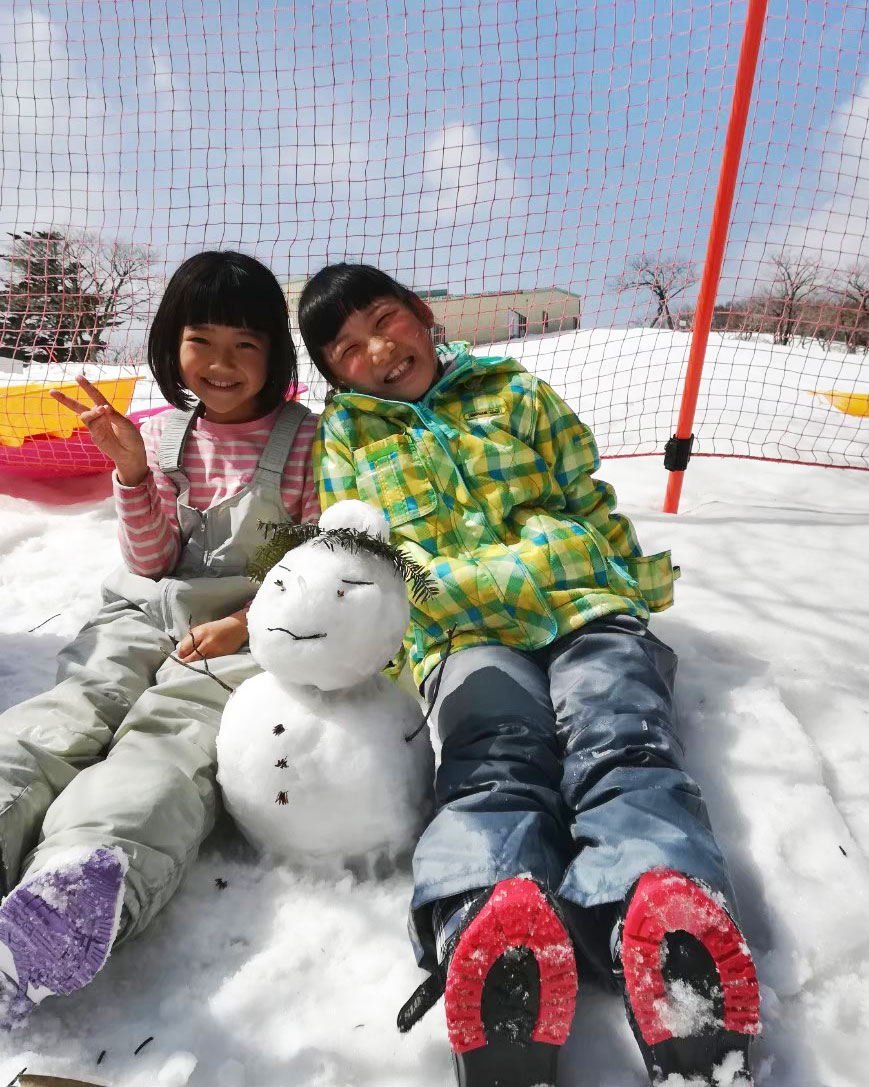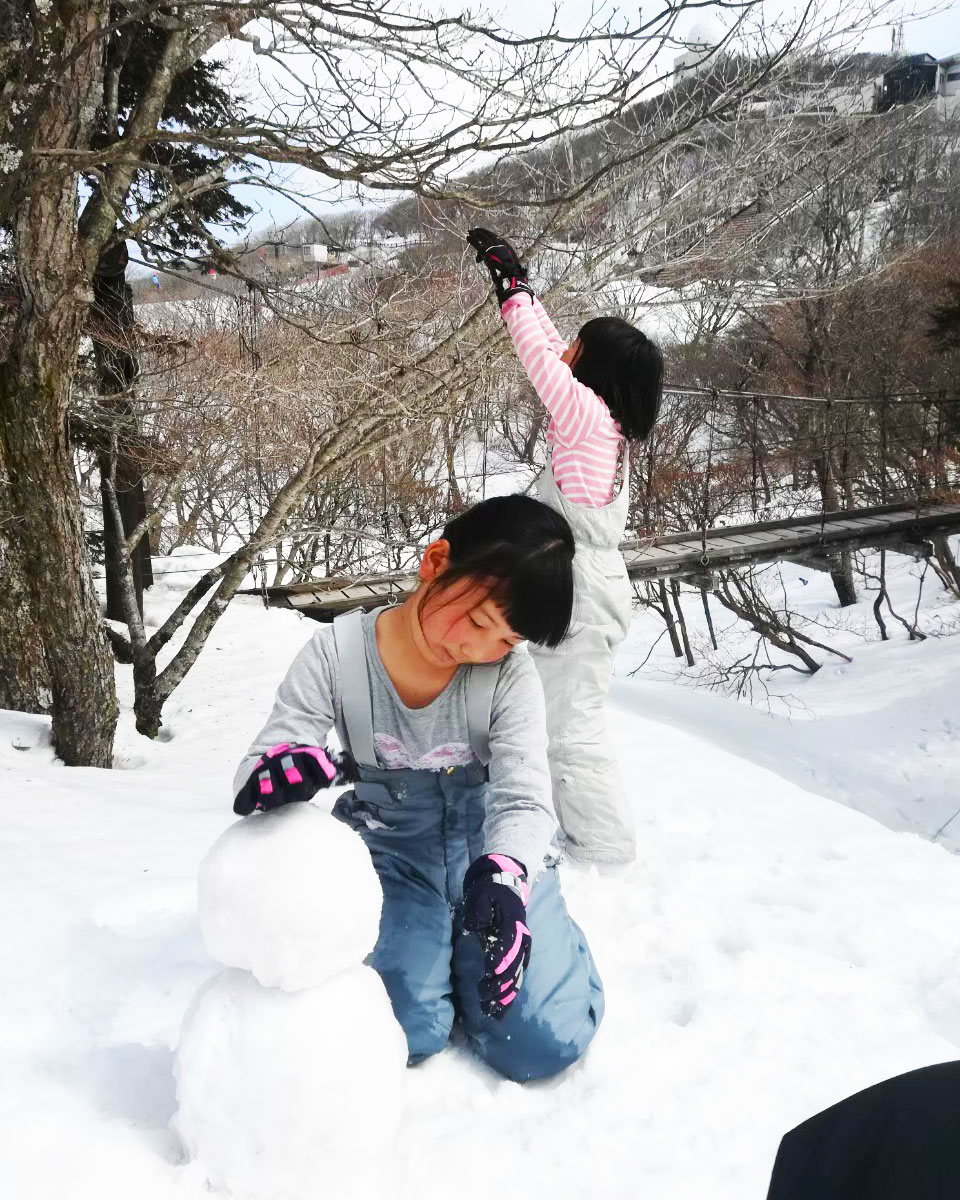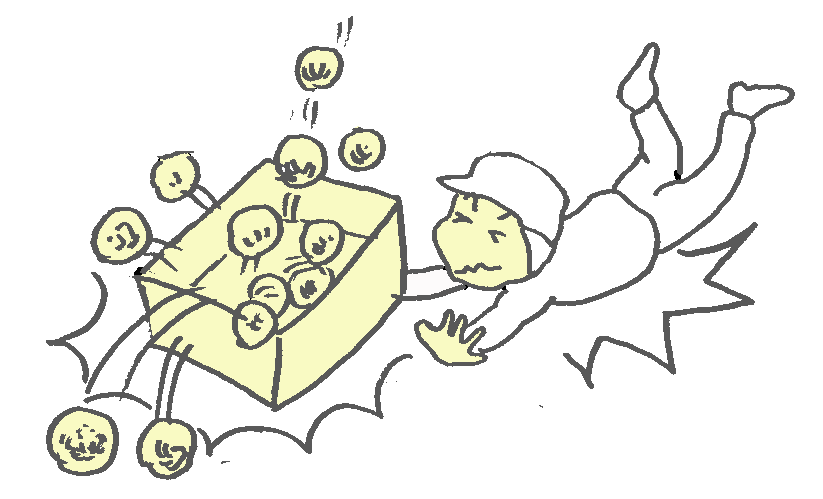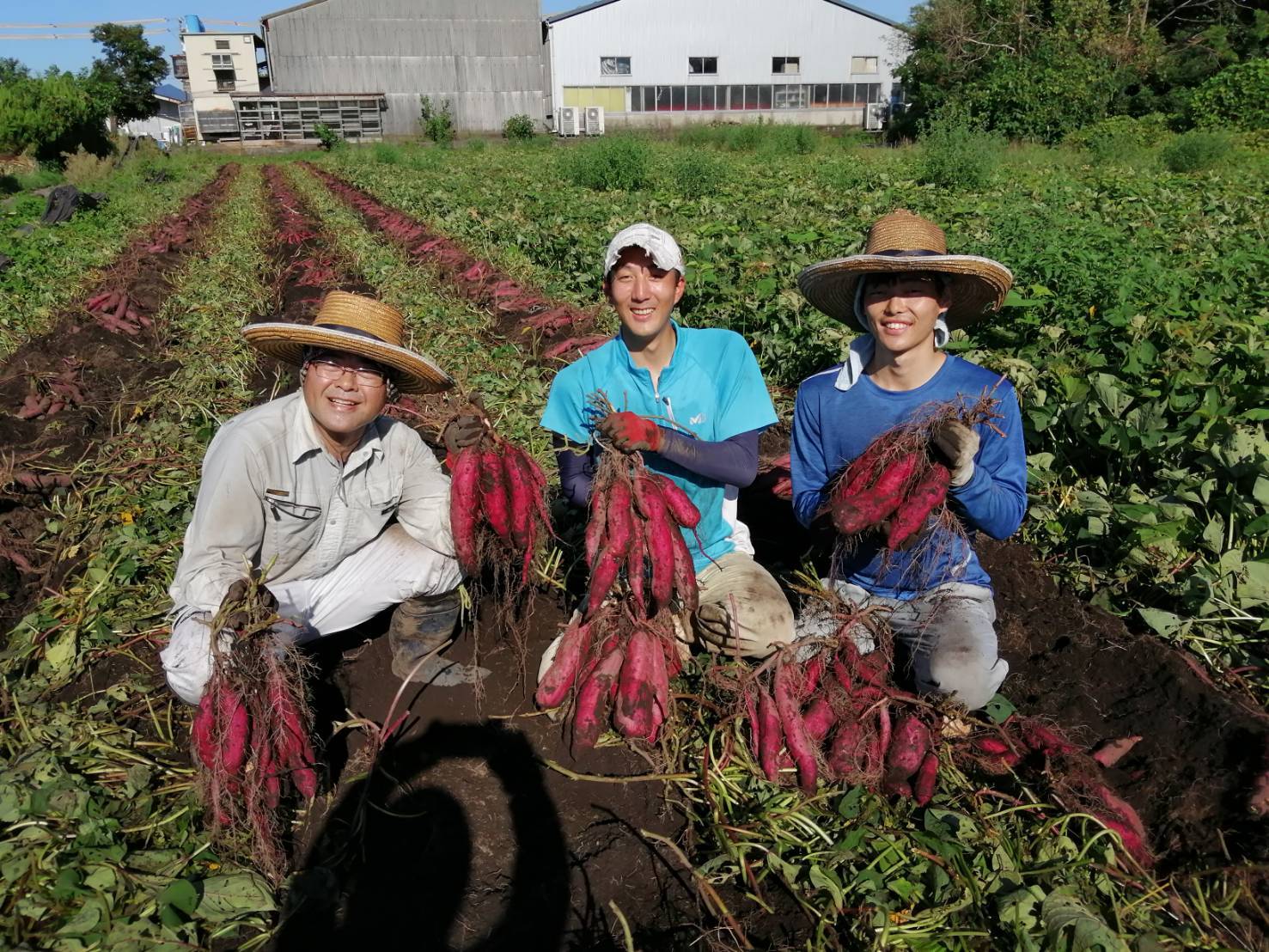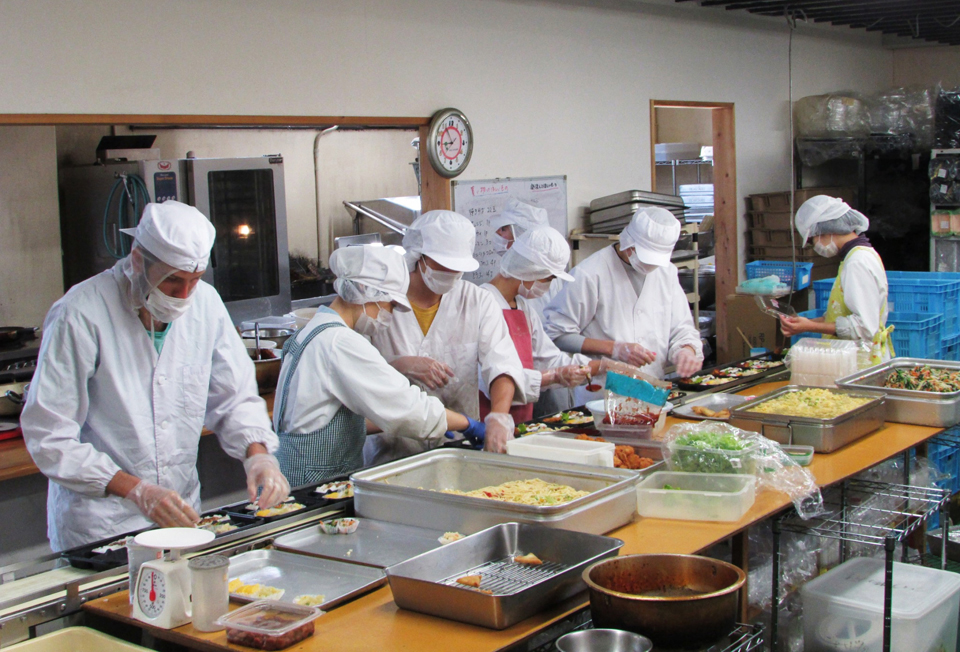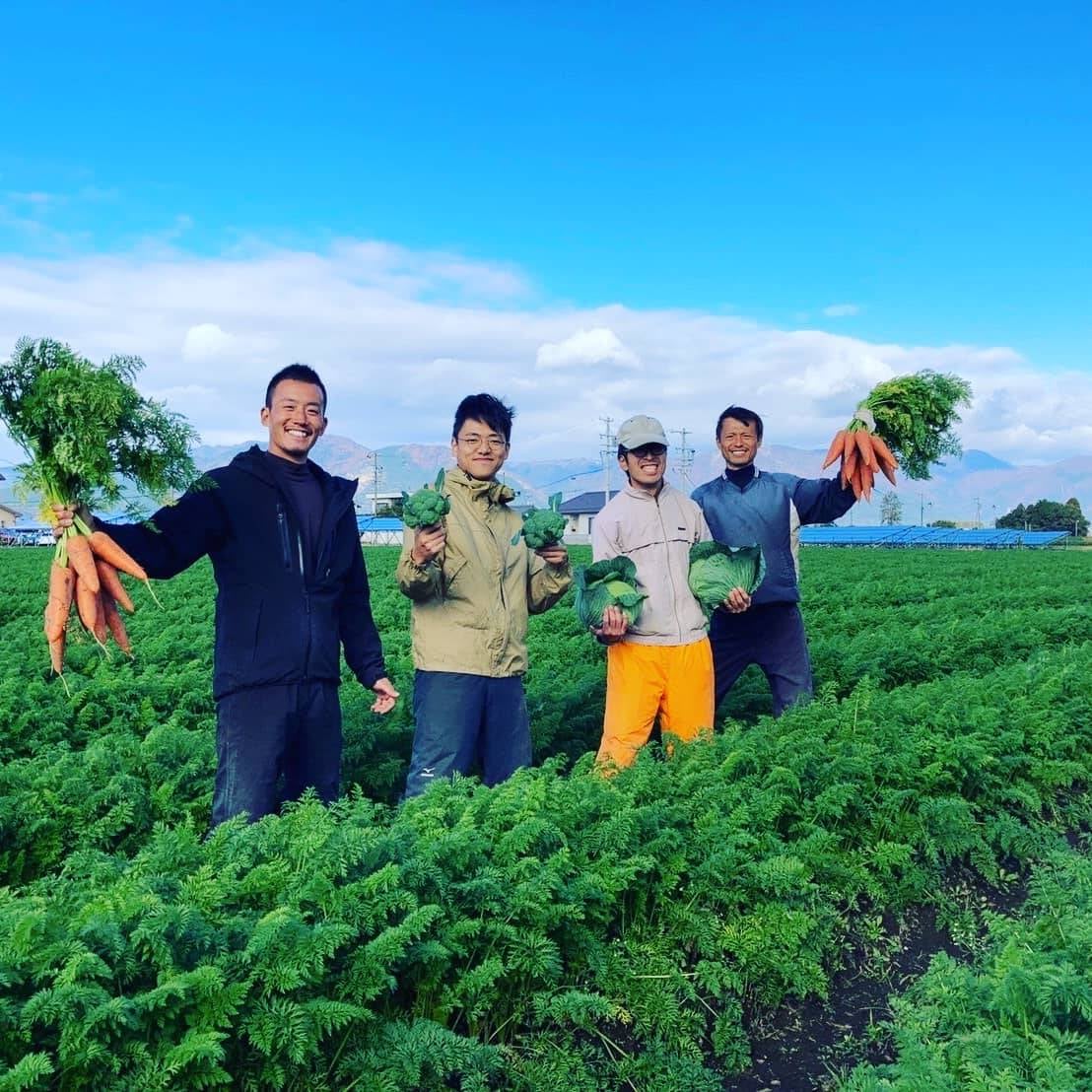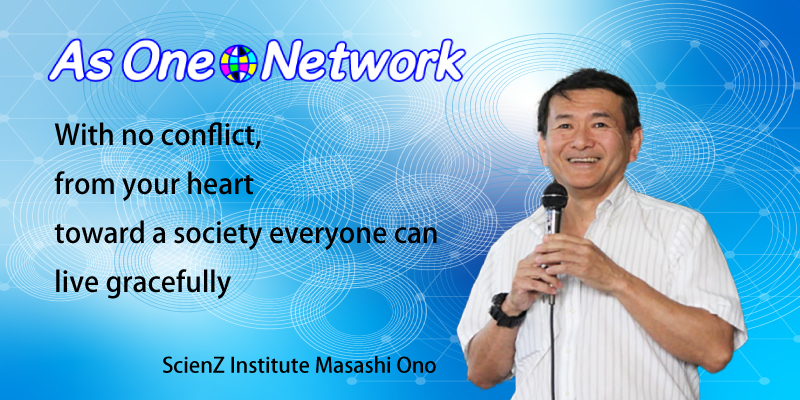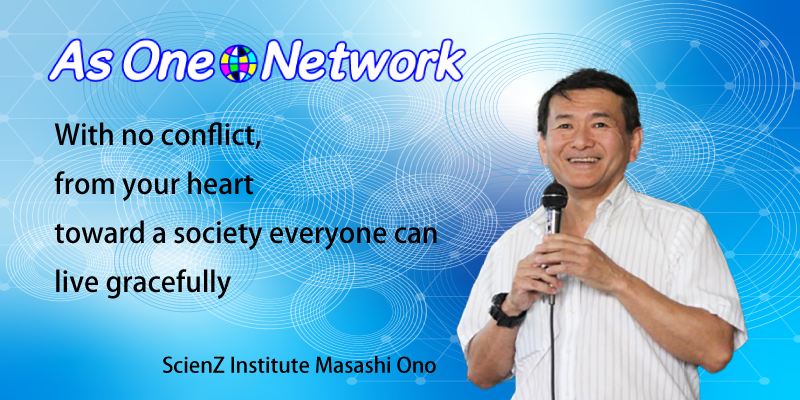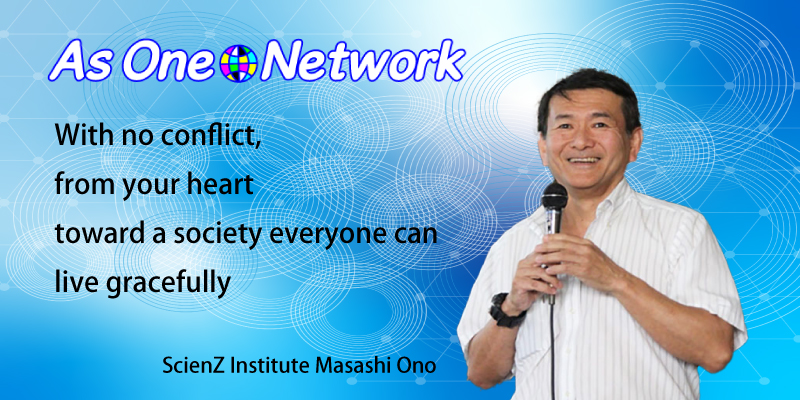Creating the Next Society - Part 5
Toward a society where people can live gently and without conflict
Masashi Ono, ScienZ Institute, Inc.
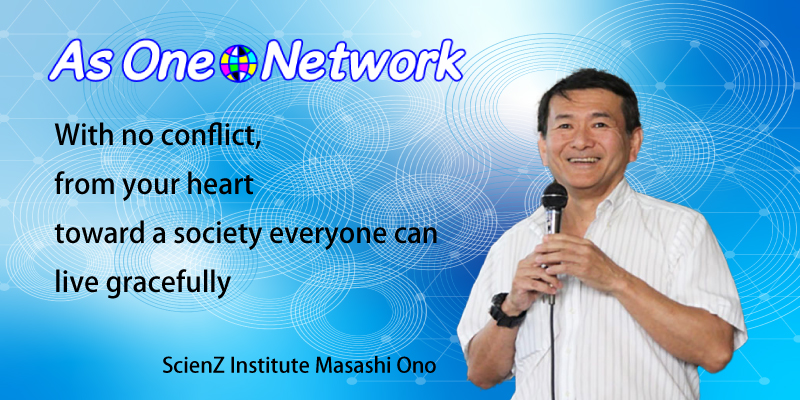 Chapter 2
Chapter 2
1. the heart of community building is human relations
~its abundance will not collapse no matter what happens
Toward a regenerative society, many challenges have been conducted through various activities like energy self-sufficiency, farming and eating methods that follow nature, local currencies and basic income in search of alternative economies, and clothing and construction using natural materials.
However, we think the heart of the community building is the quality of human relationship.
All of varios efforts are perfomed ofcourse through cooperation among people. That is, we cay say that the relationships form the base of these activities.If their relationships are not sustainable, no matter how wonderful the technology or methods, they will not work enough, and in some cases, the community, group, or company itself may not be able to survive due to stagnation or conflict.
According to the study on evogillages in the United States**, more than 90% of ecovillages have collapsed within three years of start-up. The reason for this is either relationship problems or economic issues (actually, this is also a relationship ones).
It is indeed a pity that people are not able to sustain the community because of poor human relations, even though they willingly start with feeling hope in communities or ecovillages. We also hear of many communities where people can continue but their relationships inside are not well, resulting in patience, reservation, oppression, and compromise, and various problems.
I suppose this is not limited to community building, but similar problems are occurring in couples, families, societies, workplaces, and various other activities. In other words, as is obvious when you think about it, all human activities are based on human relationships.
In other words, if the base human relationships are good, everything will go well. I would say that the core of community building, or rather, the core of all activities, lies in these human relationships.
In fact, I also think that today's social problems would be easily solved if only human relations could be improved, and all wisdom and technology could be put to use. (See Chapter 2, Section 4, and the various sections of Chapter 3.)
As mentioned above, in the search for peace, conflicts and confrontations arise with people who have different opinions.... It is very weird when you think about it, but these things often happen. People may think that human relationships are important, but I think they don't realize how important they really are.
When people promote community building, they may also believe that relationships are important, but they may not recognize that this is the core of community building. In some cases, "relationships are important in order to advance something" (i.e., relationships are secondary).
In many cases, we may prioritize matters and economics over relationships, or we may value our own arguments more than relationships.
Also, when we hear that relationships are important, we make an effort to create good relationships, make a conscious effort to get along with others, adopt communication skills, and some others.
"How can I improve my relationships?" Many people may think, "How can I improve my relationship? This may improve the relationship on the surface, but I don't think it will fundamentally improve the relationship.
The idea is to keep the relationship from falling apart, but it will lead to a relationship which we become careful to each other. In such a fearful state of mind, there is no way to have good relationships.
I would say that relationships cannot be solved by techniques or methodologies.
When we become closer to the communities,work together,or become a couple and some others, various relathinship problems come to the surface between us;that is, when we keep a certain distance,we can not see it.If something happens and people explode with anger, blame or accuse others, feel superior or inferior to others, or feel alienated, the relationship will fall apart.
If something happens and they don't get along, those people are in an unstable relationship.
If you don't focus on that, I think it will always be unstable.
If we leave that as it is, I don't think we can have sustainable relationships without conflict.
People are comfortable and pleasant when they are close. No one likes to be on bad terms with others. We get lonely when we don't get along with others, and we get uncomfortable when we disagree. And if they become angry or quarrelsome, they will feel uncomfortable, and so will those around them. Such relationships are not sustainable.
I consider that the most important thing is to have a close relationship in which one can feel at ease from the bottom of one's heart.
However, many people may have given up on such relationships, saying, "I can't do it. Or perhaps they do not know the path or method to such a relationship.
I think it is important to review the situation from the ground, zero. I think that unconsciously, people have given up because they have assumed that "people are like that," or that they are "angry," "always blaming," or " putting the blame on others," toward themselves or others close to them.
If we investigate this scientifically, we can find a way to resolve it. (We'll use the ScienZ Method I mentioned earlier!) ). If we can see the fictions created by human thinking, in other words, the "shoulds" and "should nots," we can get rid of them.
We don't need to do anything special. Just look at it straightforwardly and ask yourself, "What is going on? and you will observe it.
When that is resolved, you will see a relationship that will not collapse no matter what happens.
Whether the business is going well or not, whether we have different opinions, or whether we are in a difficult situation, we will be able to move forward together without conflict or confrontation.
When someone makes a mistake, we don't blame or accuse them, but rather we stand by them and ask, "Why did that happen? What can we do to prevent it from happening again? and how can we live together in the situation.
It is a intimate, family-like relationship that will never change, no matter what happens.
From today's common-sense viewpoint, many might ask, "How is such a relationship possible?" But it is possible. we difinitely could have that kind of relationship. And I think it is the easiest and most enjoyable relationship.
"What is going on inside of each other?" and explore it, and to have a close relationship that doesn't fall apart, it doesn't take a little skill or method. It takes a certain amount of time and energy, but if you go in that direction, even if it is not perfect, you will have a base for a intimate relationship.
Then, you will be able to communicate and discuss everything comfortably, and things will flow very smoothly. Even if things do not go well, we can always talk things over, and we can all find the best way forward on the spot. In other words, various activities can be carried out on a foundation of human relations that is not affected by any circumstances.
This is on which the As One Suzuka Community has focused most of its energy.
Several people have left during this process. However, even in the face of financial hardship and major failures, by working on this task, intimate relationships that do not crumble no matter what have been nurtured over the past 20 years. Is the base of these relationships like rich soil? On top of that, now each individual is able to express his or her personality, various activities are blossoming, and a sustainable society is just now becoming clearly visible.
2. based on conversation - a relationship where we can talk about anything, anytime
In the previous section, I wrote that the core of community building, and indeed of all activities, lies in human relationships. I consider this to mean "a relationship in which anything can be talked about at any time.
In order for multiple people to work together on something, it is necessary to have constant conversations with each other and with the people involved. I think it can be said that the quality of a group or community depends on the kind of communication that takes place.
Failure to discuss issues that lead to disagreements, disputes, and conflicts, as well as restraint, hesitation, and compromise, will lead to the stagnation and collapse of the group or community.
What is the meaning of conversation in the first place, and what for?
We may have various conversations in various situations, but We may be talking without knowing "what is a conversation?.
In today's society, it seems as if people are discussing because they have something to decide. I have heard some people say, "If we get together in the midst of our busy schedule and nothing is decided, there is no point in getting together.
I think that conversations at the As One Suzuka community are " conversations to understand each other. It may be quite different from the conventional image of discussion.
Conversation is an activity to convey one's feelings (intentions, emotions, etc.) and to receive the other party's feelings. This " conversation" is the basis of all human relationships.
When I write this, many of you may think, "What, it's that simple!" In fact, I think it is very simple and easy.
However, I think that the current image of conversation in today's society, and the preconceived notions of what is good or bad, make it difficult to achieve this kind of conversation.
I think we often react to what the other person says, such as "what to do about the matter," "is it good or bad," and so on. (Maybe you think such things are "conversations.")
When the other person expresses an opinion or idea that differs from your own, you may take it as a negative, opposing, or conflicting opinion or idea and become emotional. In response, you may rebel, become depressed that you have been rejected, or insist that you are more right, which may go in a different direction from the conversation.
If you have a hardened sense of morality, common sense, justice, duty, responsibility, or preconceived notions about others, agree and conflicting emotions will arise, and you will not be able to communicate with each other.
In this state, people do not "communicate their feelings straightforwardly.
In this state, the person is not willing to "accept the other person's feelings as they are.
In this state, conversation will not be realized.
Instead of trying to pass on your opinions and arguments, try to convey your feelings.
Rather than reacting to the other person's words or topic, you try to receive the other person's feelings.
It is very important for both parties to be in such a state of being able to talk to each other, in other words, to become people who can talk to each other (people who "can do it"!). This is also why I say that the core of community building and all activities is human relations.
No matter how serious or unforgivable a matter may be, we must put aside our own will and feelings and become one with each other in order to try to understand the other person.
Then, when the other person expresses a different opinion or idea, we become more and more interested and eager to listen.
They will be able to listen to anything and say anything without restraint or contraint.
In current discussions, I think there is often a confusion between "discussing" and "acting," without a clear distinction between "discussing" and "acting," such as "Since we have discussed it, there is no point in discussing it unless we act accordingly.
If conversation leads to restrictions or compulsions to act, we are not inclined to speak our minds as we truly feel. For example, "Since I initiated the discussion, I have to take responsibility for it," "Since I insisted so strongly, it would not be cool to change my opinion," or "Since everyone is talking about doing it, it would be hard for me to express my own different opinion," etc. This is probably due to the fact that there is no distinction between "conversation" and "action".
When we communicate, we are free to talk without restraints, to say whatever we want, to listen to whatever we want, to be carefree, unrestrained, and irresponsible. And how we act is up to the free will of the individual.
In conversations at the As One Suzuka community, we " talk and act freely".
Through these conversations, we find points of agreement, make plans, and decide on things, and then we each put them into action. After the implementation of the plan, some points that were not addressed in the conversation or other matters come up, and it becomes necessary to talk about them. We will want to talk about it.
This continuous life of conversation, action, action, and conversation is also the work of a society based on human relationships.
There seems to be an idea of separating a place to talk what to do and a place to talk how to do it, but in the As One community, when we freely have conversations based on mutual understanding, we naturally feel that concrete things will come out of it.
As each person grows to be able to communicate (become a person who can communicate), the conversations are realized, and the community is nurtured and grows through the conversations.
The place for conversations is a free space with a good view where people can connect with each other in a familiar way, without psychological pressure or the need to protect themselves.
In other words, the realization of conversation is also the realization of a society where people can live gently and without conflict, as they feel.

